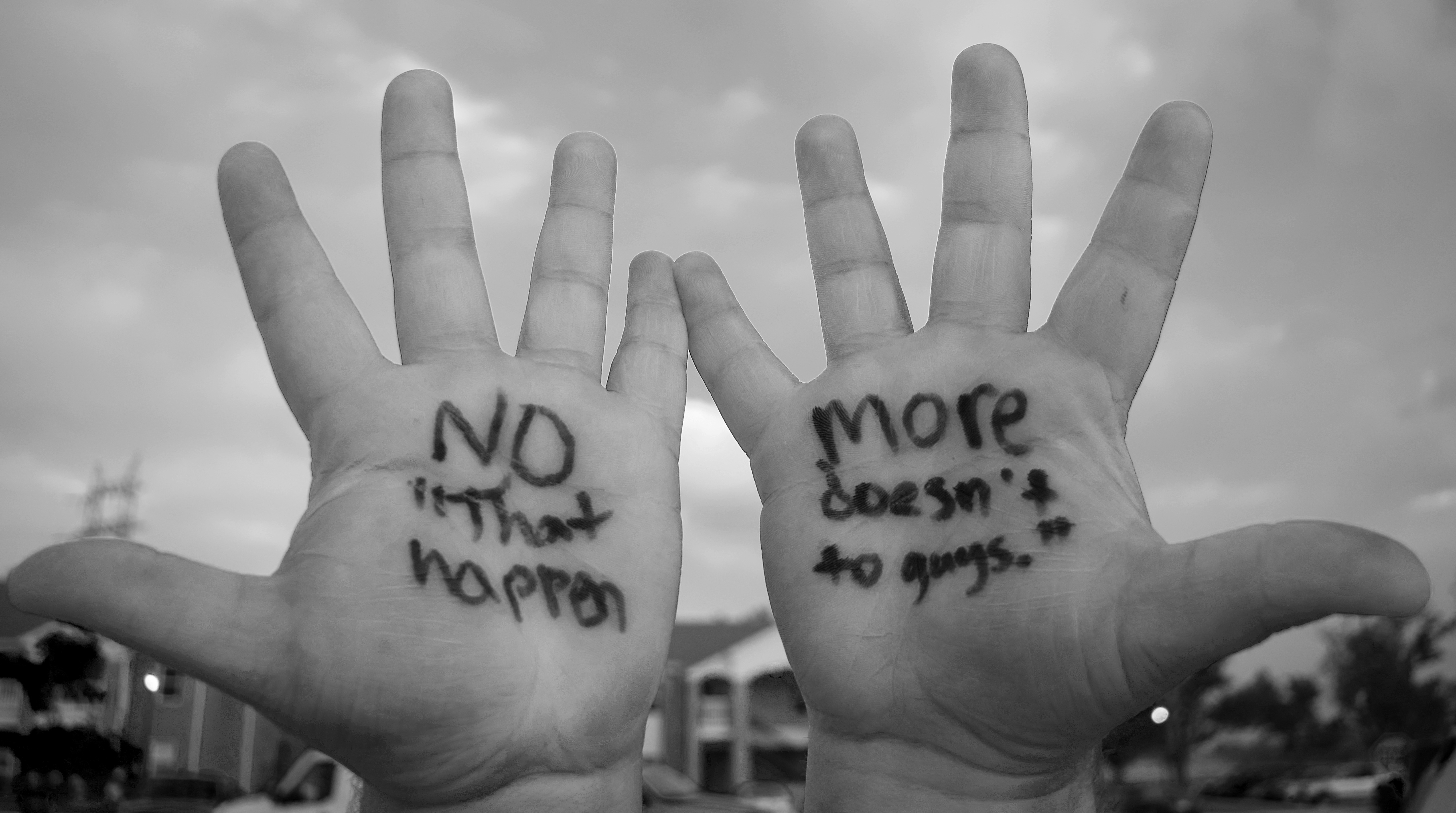For One In Six Men Sexual Assault Isn’t A Myth

Staff Writer/Photographer, Jenna Twyman
“I had no idea what was going on. It wasn’t until I was older that the realization set in, and when the problems started. I didn’t have any real support system or way to process it so I never told anyone and just struggled with it.”
It is only a myth in our society that men are not sexually assaulted. It is likely believed sexual assault is a crime mainly experienced by females, however, researchers have found one in six men have experienced sexual abuse or assault, whether in childhood or as adults.
Troy Leinhert, whose name has been changed for this article, was only six years old the first time he was sexually assaulted by his older brothers. Leinhert was assaulted again at age seven. Due to his young age, Leinhert didn’t understand what had happened to him until about his sophomore year of high school, shortly before his first suicide attempt.
“I didn’t really cope very well obviously. I wasn’t very good with feeling any emotions at the time.”
Survivors of sexual assault endure a wide range of reactions. However, there is no one standard response following an assault. A survivor’s reaction is their own way of coping with the crime that has been committed against them.
It is acceptable to encounter a mixture of emotions, to feel too much or nothing at all. Fear, loss of control, shock, numbness, distrust, isolation, anger, denial, guilt and self-blame, depression, and even suicidal thoughts can be common reactions for someone who has experienced sexual assault. Some survivors express emotions while some prefer to keep their feelings hidden. Some may tell others what happened right away, some will wait weeks, months, or even years before discussing the assault, if they even discuss it at all. Regardless of whether the assault happened recently or many years ago, it can continue to have an influence.
The impact of a sexual assault can have short term or long-term effects and life for survivors may get worse before it can get any better.
Years have passed since Leinhert’s assaults but he continues to struggle even through normal day to day life.
“The last 5-6 years the day to day has become less and less. It’s harder to even get out of bed really,” Leinhert said.
Despite the traumatic weight sexual assault can cause, many cases are left silent.
Rape is actually the most under-reported crime. According to the Department of Justice, only 230 out of every 1,000 sexual assaults are reported to police. That means about three out of four go unreported, and this statistic is probably underestimated.
Males who have experiences are less likely to disclose them than females.
Stereotypically men in our society are expected to be ready for sex and to be the aggressors in sexual relationships, so it may be difficult for a man to tell people that he has been sexually assaulted. The survivor himself or those around him may feel that a “real man” would have been able to protect himself, but being sexually assaulted is no sign of physical weakness. In society it is expected for men to be in control, therefore the survivor and others may have difficulty accepting the image of a man who has been victimized.
The victim is the most direct person affected by sexual violence, but the effects can impact their closest relationships as well.
According to the Rape, Abuse, and Incest National Network (RAIIN), 37 percent of survivors experience family and friend problems, including not feeling able to trust their family or friends, or not feeling as close to them as before the crime.
Leinhert’s assaults caused his own relationships to shift. Currently, Leinhert suffers with a large amount of trust issues and tends to be less trusting of even those close to him.
“You won’t ever have the same innocent view of the world or the same trust as you did before,” Leinhert said.
In an attempt to cope with the trauma, the physical, and emotional pain, some survivors may turn to drugs or alcohol. Some studies report that sexual assault victims are 13 times more likely to abuse alcohol and 26 times more likely to abuse drugs than those who have not been sexually assaulted. The chances of misusing these substances can increase if a survivor has no other means to deal with the lasting effects of the trauma.
After finally realizing what had happened to him, Leinhert turned to alcohol and was really involved with drinking for a period of time in his life. Eventually, Leinhert came to his senses and quit drinking after his previous suicide attempt this past year.
“I drank a fourth gallon of bleach because my knife wasn’t sharp enough to do the job.” Leinhert said, “After this last attempt I got help, real help. Things have become easier to be open about, still not easy but easier.”
Sexual assault does not discriminate against gender, there are countless males, young and old, that have suffered from the traumatic event or events.
Individuals who have faced traumatic experiences like Troy are much greater than what happened to them. They are someone’s son, brother, friend, uncle, dad, grandfather, nephew, grandson, and loved one, but beyond all of these things they are someone. The relation someone has to others does not make them a significant individual, the fact that they are someone, their own person, proves they are more than enough, that they are powerful, extraordinary, and most of all have value. There is a story behind every sexual assault statistic and behind each story is a survivor. A survivor that deserves to have their story be heard.
Sexual assault is a hard thing to talk about but needs to be talked about anyway.